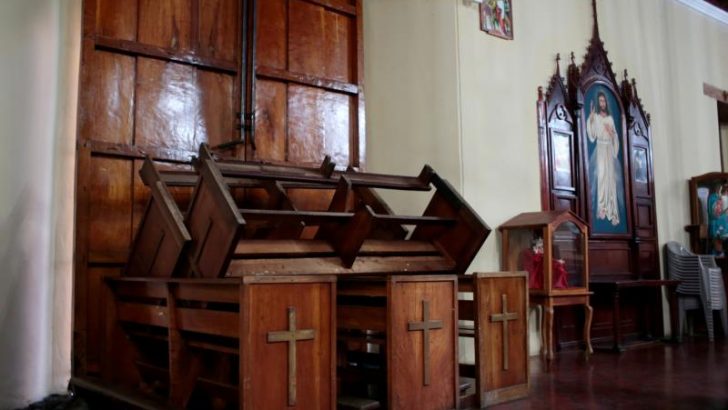Pro-government mobs have besieged another Nicaraguan parish, further inflaming tensions between the Catholic Church and President Daniel Ortega, whose Sandinista regime is targeting dissidents and attempting to stamp out dissent.
Lat week, Ortega supporters tried to enter St John the Baptist Parish in Masaya, south of Managua, the capital, forcing churchgoers to barricade the doors with pews.
Some churchgoers and altar boys were struck by the mob, according to media reports, though neighbours intervened and protected those inside as they left the building.
The churchgoers were participants in a pilgrimage organised to support mothers who have waged a hunger strike to pressure the government to release their political-prisoner children.
“They’re asking for a change of priests in Masaya and if we do leave, our consciences will not have been bought,” Fr Harvin Padilla said of the government in a video uploaded to social media. “We are free and we will act like pastors.”
Fr Padilla also told the churchgoers that the mob was acting like “hyenas” and, in reference to Ortega and his wife, Vice President Rosario Murillo, “We don’t follow a dictator nor a crazy woman. Hence, we’re not afraid.”
Protests
The Ortega regime has sowed fear in Nicaragua over the past 18 months. It has violently suppressed protests, which started over objections to a reform of the Central American country’s social security program but morphed into demonstrations demanding Ortega’s ousting.
Human rights groups estimate the crackdown on protests has cost more than 300 lives. The government, meanwhile, has branded the opposition and the Catholic Church as “terrorists” and “coup mongers”.
Nicaragua’s bishops’ conference has tried to broker a national dialogue, but the process has stalled because the government has refused to accept calls for new elections to end the crisis, said Msgr Carlos Avilez, conference spokesman.
“It’s due to political arrogance,” Msgr. Avilez said of the government’s response to the Church support for hunger strikers. “They have economic power, they have a lot of money and they have the power of the army and police on their side. (Yet) out of fear they won’t allow any protests to start.”


 Pews of St. John the Baptist Church in Masaya, Nicaragua. Photo: CNS
Pews of St. John the Baptist Church in Masaya, Nicaragua. Photo: CNS 